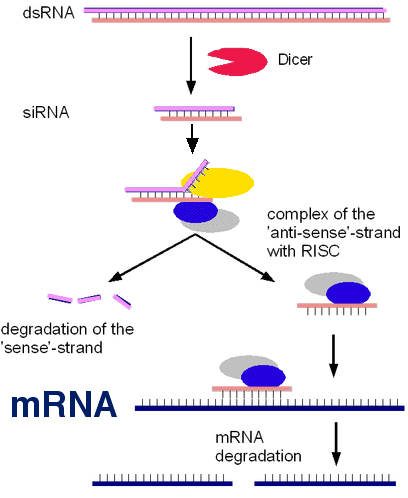Newsletter Signup - Under Article / In Page
"*" indicates required fields
RNA and clay could be the future of crop protection and manipulation of plants’ traits. Researchers have managed to use these ingredients to create a spray capable of “vaccinating” plants, teaching them to recognize the genetic material of viruses.
RNA-based therapies may have suffered a recent blow in the clinic this week, but when it comes to agricultural research they’re having a field day. Researchers from the University of Surrey and the University of Queensland have shown positive results in using RNA to protect crops from viruses, and this success has opened up a future of easier, softer genetic manipulation of plants — with less controversy than GMOs.
Published in Nature Plants, the study’s success hinges on BioClay, clay nanoparticles that can be loaded with designer double-stranded RNAs (dsRNA) and simply sprayed on plants. The BioClay adheres to the leaves, enabling the gradual release of the RNA. This overcomes the instability of ‘naked’ RNAs, which had previously hindered the use of this approach to crop protection.
The efficacy of the method was tested in different plants, such as cowpea and tobacco, against two different plant viruses. The plants were able to take up the dsRNA, which then induced RNA interference (RNAi), silencing genes from the viruses and protecting the plants.

The excitement about this breakthrough is in good part due to its formulation. Not only is a spray an easy solution, the BioClay is non-toxic and degradable, positioning itself as an environmentally-friendly alternative to chemical pesticides. Indeed, these clay nanoparticles were first developed for drug delivery of human therapeutics, which should speak for their safety profile.
BioClay is also being hailed as an alternative to traditional GMOs, an ever thornier topic. Several renowned scientists vouch for GMOs citing evidence from research, but due to public suspicion of anything labeled “GMO,” there’s still a significant market demand for plant modification techniques that avoid the quagmire. It’s yet too early to tell whether BioClay will satisfy both growers and consumers, but sidestepping direct DNA modification may well make it popular. For now, concerns have been raised about the lack of data on the impact of RNA to the environment and human health.
As the technology’s potential ‘blossoms’, it could become a very important tool to arm plants against pests and pathogens, which are estimated to reduce global crop yields by up to 40% a year and are a threat to food security. Moreoever, it could be much more straightforward and versatile than engineering plant’s genomes. The technique should, in theory, also work to modify other traits in plants, such as drought resistance. BioClay is opening he door to a GMO replacement.
Images from Pixabay, John Schmidt (CC 2.5)






